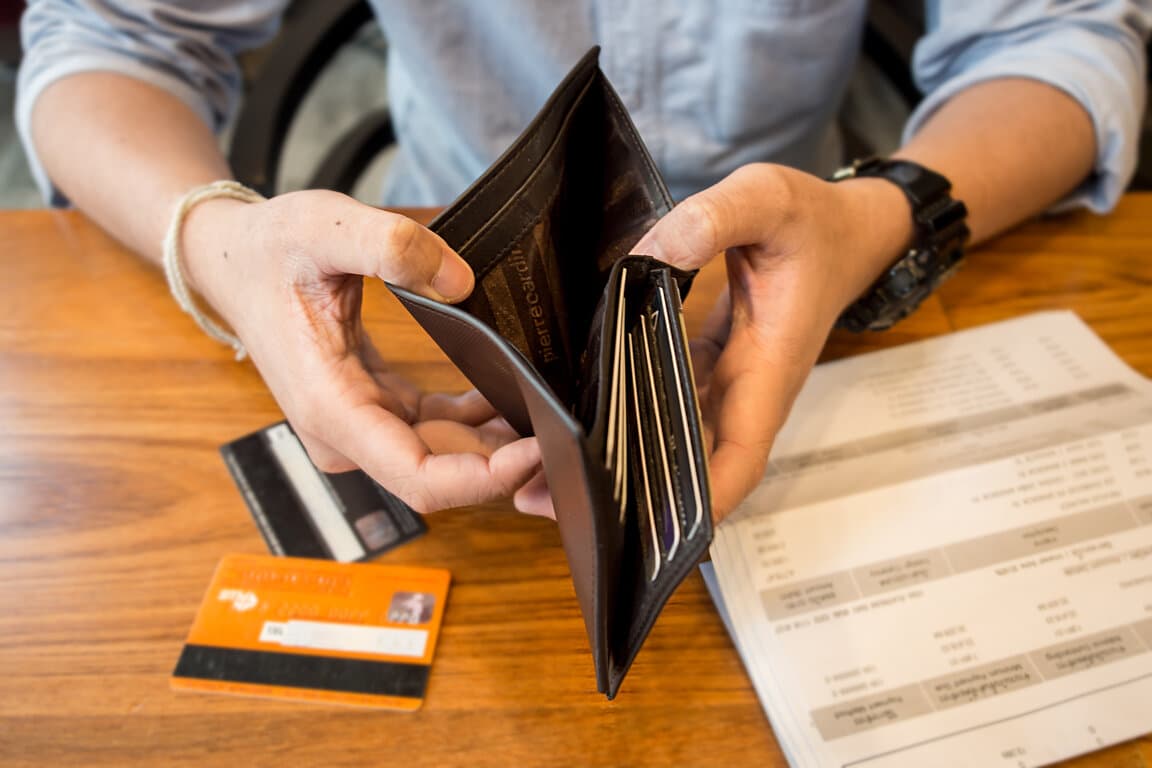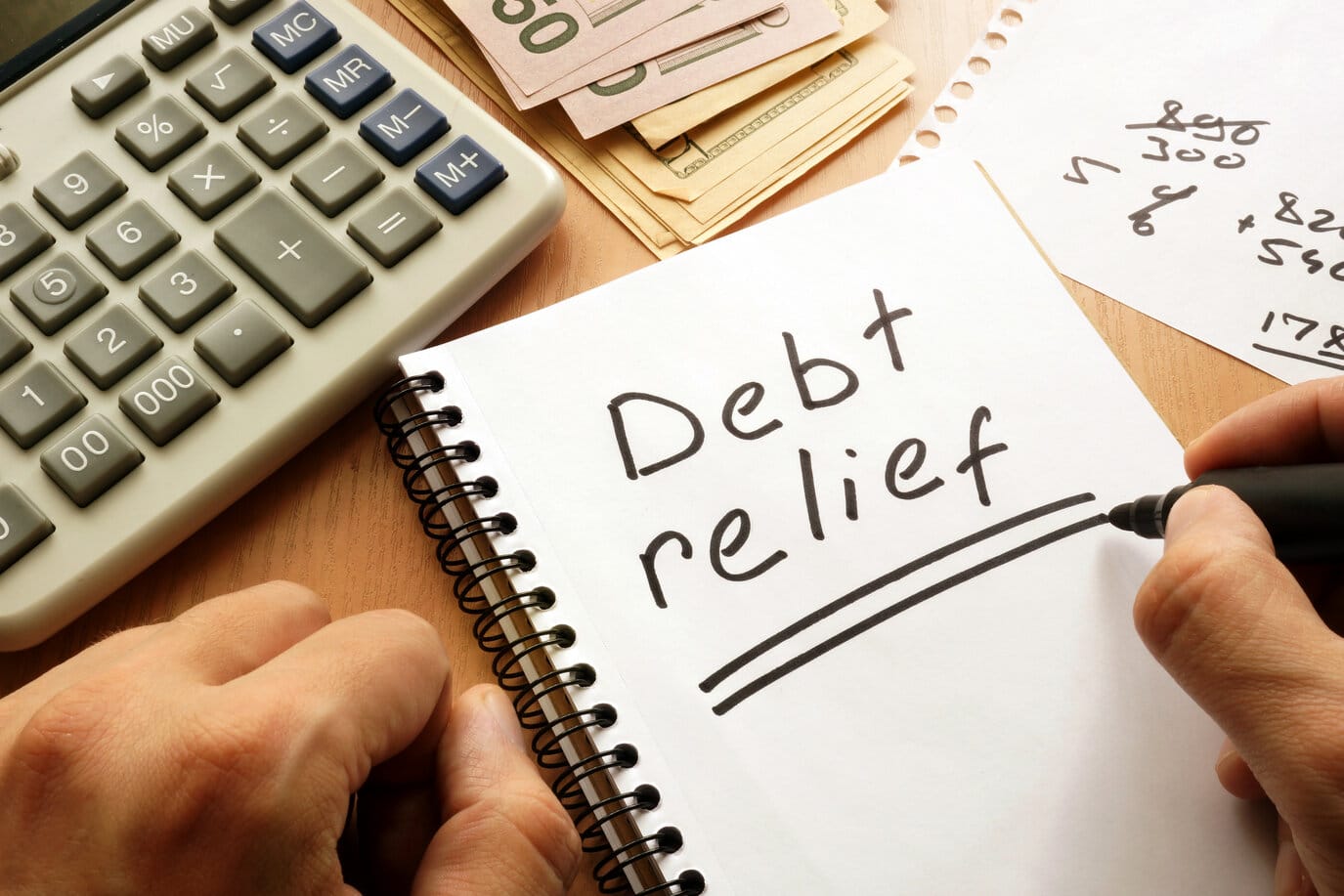Jasmine Birtles
Your money-making expert. Financial journalist, TV and radio personality.


Dealing with debt and worrying about bankruptcy can be a stressful and confusing time. There are different options available, but it can be difficult to work out which one is right for your personal circumstances. This post explains what IVAs, DMPs and bankruptcy are and will help you work out which option is best for you.

IVAs, DMPs and bankruptcy are all different ways of managing your debt.
IVA stands for Individual Voluntary Arrangement. It’s a formal and legally binding agreement between you and your creditors to pay back your debts over a specified period of time. It’s approved by the court and both you and your creditors have to stick to it.
Declaring bankruptcy is very similar to agreeing to an IVA. Bankruptcy is a legal proceeding involving a person or business that is unable to repay their outstanding debts. This means it also applies to self-employed people that are struggling to make ends meet. The bankruptcy process normally begins with a petition filed by the debtor or on behalf of creditors. nAny creditor you owe more than £5,000 to can file bankruptcy against you.
Meanwhile, a DMP, or Debt Management Plan, is a voluntary informal agreement between you and your creditors for paying back your non-priority debts.
Non-priority debts are things like credit cards, loans and store cards. You pay back the debt by one set monthly payment, which is divided between your creditors. This means it does not apply if you are struggling to pay your rent, mortgage or utility bills. You might, however, be able to set up a DMP arrangement with, for example, your energy company – IF it’s the only outstanding debt you have.
In short, you need them when you can’t pay back your debts. Ideally, you need to look at one of these options within a month or two of first struggling to pay debt, unless you know your income is guaranteed to go up soon (such as starting a new job). Leaving it too long will increase debts and make it harder to pay them off.
Typically, creditors will start bankruptcy proceedings if they believe there’s no other way for them to get their money back. But, in many cases, people in debt choose to start the process themselves.
This is ALWAYS more preferable than having bankruptcy charged against you!
You may also need them if you have large debts that you can’t repay, are behind in your mortgage payments, or you’re being harassed by bill collectors—or any combination of these.
Declaring bankruptcy or agreeing an IVA or DMP is certainly not something to take lightly. It can turn your life upside-down and impact your ability to get a loan, mortgage or even a bank account or mobile phone contract in the future.
Bankruptcy and IVAs are very similar. An IVA is for lower debts that can be repaid over time – with the remaining amount at the end of that period struck off. Bankruptcy is when your debts are entirely struck off – but you’re under severe financial supervision for years after.
A benefit of an IVA is you’ll get an insolvency professional to help you and make sure you do what you say you will. Bankruptcy is more likely to affect your job than an IVA. Both are more likely to have an impact if you’re at a senior level. You can’t be a financial director of any company (including one you’ve set up) with a current bankruptcy on your file.
A key difference between the two is if you own your home.
During an IVA you won’t be forced to sell your home, but you might be asked to re-mortgage it six months before the end of your IVA. You’ll only have to do this if it’s affordable. If you can’t, you might have to either pay an extra 12 months of payments into the IVA, or raise money from a third party instead.
But, during bankruptcy, if you have equity in your home, it is very likely you will be made to sell it.
A DMP has significant differences. Firstly, it is not legally binding. This means you’re not tied to a minimum period and can cancel the plan at any time. It goes both ways: your creditors must agree to the plan but, once the time period is over, they could chase you for remaining debts.
But, using a DMP may take longer to pay back your debt because you’ll be paying less each month. Also, your creditors won’t necessarily freeze the interest and charges on your debts, so the amount you owe might go down by less than you think.
Also – and most importantly – a DMP won’t write off your debt. Bankruptcy and IVAs will once you’ve completed your IVA or been discharged from your bankruptcy.
DMPs also show on your credit record as defaults, so beware of their impact on your future. Major defaults stay on your record for six years (sometimes more). A DMP default is – usually – removed after that time. However, an IVA or bankruptcy on your credit record stays for six years AFTER the end date of the filing – so it could be much longer.

There are plenty of organisations and charities that can help.
One of these charities is National Debtline. It has a personal and a business debtline – so if you’re self-employed and struggling, they’ll be able to help. Use their web chat services or call 0808 808 4000 between 9am – 8pm Monday to Friday.
Another is Community Money Advice (Jasmine is patron of that charity). It involves small community advice centres around the country, mostly working out of churches.
StepChange also offers a web chat service or you can call them on 0800 138 111 8am-8pm Monday to Friday, 8am – 4pm on Saturdays.
Community Money Advice runs local centres with free debt advice, assistance with managing your creditors, and financial education to put debt into your past for good. Find your nearest centre here.
Your local Citizens Advice Bureau may be able to help you, too. They also have useful information on their website if you can’t make it to your local branch.
Also, many local councils have debt advice help. It might be limited but it can be worth contacting your local council if you’re struggling to pay your bills, particularly if this is due to coronavirus. They might be able to help you access extra funding or discounts on your Council Tax bill to reduce your financial stress.
You shouldn’t have to pay for debt advice. There is plenty of free debt advice available. A lot of free debt advice is available through debt charities so you shouldn’t ever have to pay for help.
Beware – you may find unscrupulous companies sitting at the top of your ‘debt relief’ Google searches – but they’ll tell you that you have to pay a fee.
All the charities and organisations listed above will not charge you a fee and you will receive the same service than any company or adviser you pay for. The service is better because they won’t be trying to get fees out of you.
Debt is overwhelming – don’t panic! Read our debt articles to get ahead and stop your debt spiralling.
